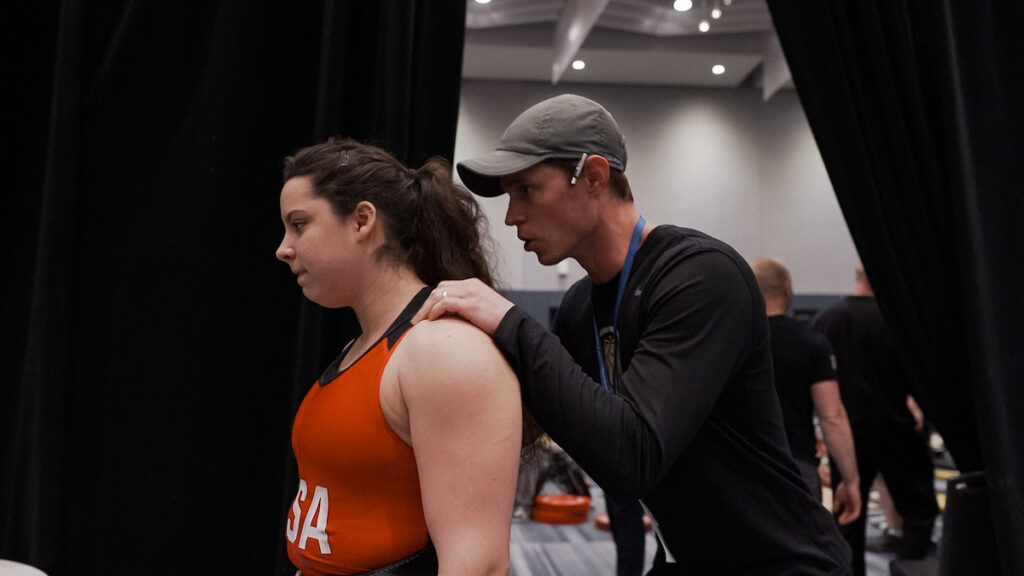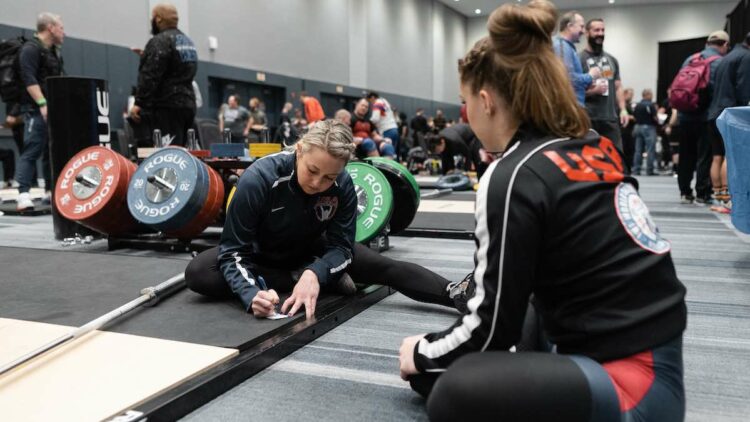In December of 2020, the International Olympic Committee (IOC) issued new guidance for athlete quotas in the Paris 2024 Olympic Games. Continuing a precedent established over the last five years, the number of athlete slots for the Weightlifting event was reduced to 120, down from the 196 allowed in Tokyo. This is the lowest representation for the sport since 1956 and may create problematic outcomes for the athletes wishing to compete at the Games.
Since 2016, the IOC has scrutinized Weightlifting’s status as an Olympic event due to an uncommonly high number of performance-enhancing drug suspensions within the sport. Recent attempts to reform the sport’s image by the International Weightlifting Federation (IWF) have been regarded as haphazard by the governing bodies of many countries.
On January 29, the European Weightlifting Federation (EWF) issued a press release stating that they are “afraid that the demonstration of lack of understanding within the IWF executive board will be a disastrous message to the world.” The IOC itself has maintained their stance that the prevalence of drug abuse under the IWF raises “the question of weightlifting being on the program at the Olympic Games.”

[Related: European Weightlifting Federation “Disappointed” by Changes to Anti-Doping Rules]
Such public blowback, coupled with the publication of a scathing report about the turmoil within the IWF released in summer 2020, have severely damaged the reputation of the organization in the eyes of those overseeing the Games. However, it is the athletes and their coaches who will face additional consequences and challenges as a result of the Committee’s restrictions.
Qualification and Preparation
Olympic qualification is a long and arduous process for any athlete no matter their sport. Changes to the structure of the Games can affect how weightlifters prepare even years in advance. Weightlifters and their coaches vying for Olympic selection carefully monitor the bureaucratic climate for any developments that may affect their plans.
In the United States, the reduction of athlete slots in Paris will likely mean a more stringent evaluation of talent by USA Weightlifting (USAW). Already burdened by the upheavals of the COVD-19 pandemic, USAW may be forced to be more selective with their time and resources in the brief three-year period between Tokyo and Paris.
View this post on Instagram
For the athletes hoping to compete in 2024, a more competitive selection process by their governing body may accelerate their training plans, alter their competition scheduling, or both. Reactions from prospective competitors to the ongoing changes in Olympic structure have been mixed, though some have embraced the challenge.
“The fact that [Olympic selection] is more competitive is just fuel for the fire,” says Meredith Alwine, 2020 USAW National Champion in the Women’s 71kg division and Paris 2024 hopeful. “Last year my ROBI points took a hit, but I’m ready to train and compete at the highest level again.”
Athletes who could not accrue enough ROBI points — the qualification ‘currency’ employed by weightlifting federations as a performance metric — to be selected for Tokyo 2021 could find themselves competing more frequently in the years leading up to Paris in order to ensure they’re afforded a position on the team. A busier competition schedule reduces the precious training time required by high level weightlifters to make meaningful progress and can be potentially injurious.

“The most obvious issue [with higher competition frequency] is burnout from the constant traveling, heavy lifting, and stress. I already feel like I have a hard time getting enough time to go through a full training cycle that would be ideal for competition prep,” says Katherine Nye, 2019 IWF World Champion and one of USAW’s leading contenders for medaling in Tokyo.
Further, athletes that have been in the sport for a number of years may have to confront some harsh truths about their place in Weightlifting. It is possible that, having to field a smaller team than in previous years, many governing bodies will opt to skew towards younger athletes who can handle a more intensive preparatory cycle and are generally less prone to serious injury.
Countries such as China that maintain strict, medal-oriented selection processes could end up sidelining some of their competitive veterans in lieu of younger, more resolute lifters.
Further Consequences
While the athletes themselves suffer the most from the cuts, a smaller Weightlifting event in Paris undoubtedly damages the experience of the spectators and fans as well. A smaller, more ‘exclusive’ event could mean tighter battles for podium position and a more interesting viewing experience, but not without tangential drawbacks. Fewer athletes competing in Weightlifting will mean less air time for the sport, likely dampening exposure to a wider audience that is needed for it to thrive in the years between the Games themselves.
For the athletes and coaches aspiring to one day compete at the Olympics, Paris 2024 represents the most competitive selection process yet; a consequence that dedicated, drug-free weightlifters will have to suffer due to the negligence and poor sportsmanship of their peers. The reduction of Weightlifting’s presence in the 2024 Games is a regrettable consequence of bureaucratic corruption and IOC scrutiny. Weightlifting athletes face accelerated qualification schedules and more demanding preparation, as well as more intensive evaluation by their governing bodies, whose primary goal is often achieving international prestige in sport at any cost.
Between the repercussions of the COVD-19 pandemic and structural ultimatums from the IOC, the shape and presence of Weightlifting in both Tokyo and Paris remains unclear. While athletes and coaches are determined to compete on the most prestigious stage in the world, it is clear that they face an uphill battle. Fortunately, Olympic dreams are not easily dampened, and the athletes will continue to meet these challenges head on.
Featured image courtesy of Will Breault, BarbellStories
Editor’s Note: BarBend is the Official Media Partner of USAW Weightlifting. The two organizations maintain editorial independence unless otherwise specified in select partner content.